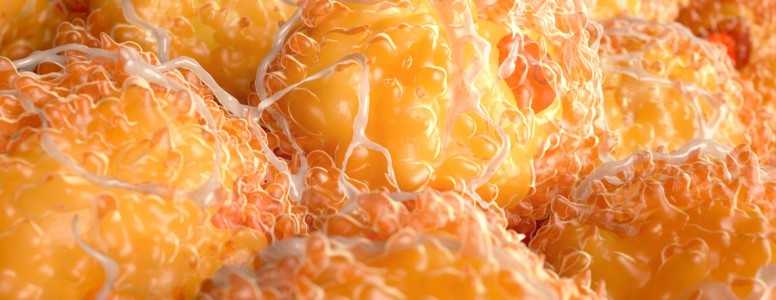US scientists have discovered how to shrink fat cells in mice fed a high-calorie diet, a finding which could have implications for tackling obesity and metabolic diseases.
By blocking an enzyme known as enzyme nicotinamide-N-methyltransferase (NNMT), mice experienced a 30% reduction in white fat cells, which hoard energy, and a 7% reduction in total body weight.
Scientists at the University of Texas Medical Branch (UTMB) at Galveston believe this finding indicates a method of restarting fat cell metabolism in white fat cells.
“Blocking the action of the fat cell brake provides an innovative ‘fat’–specific mechanism to increase cell metabolism and reduce the size of white fat deposits, thereby treating a root cause of obesity and related metabolic diseases,” said lead author Harshini Neelakanta, UTMB.
The NNMT enzyme has been shown in previous research to slow fat cell metabolism, so this study involved testing an inhibitor of NNMT in mice that were obese having been fed a high-calorie diet.
As well as experiencing slower fat cell metabolism and weight loss, the mice also attained normal cholesterol levels, which compared to cholesterol levels of mice at a healthy weight.
Mice that were treated with placebo experienced none of these benefits, in fact the size of their white fat cells increased and they gained weight. Both groups of mice ate the same amount of food during the study.
Currently it is not know whether NNMT inhibitors are safe and effective in humans, but the Galveston researchers say a drug which mimics this action could have positive effects on treating obesity, a leading cause of type 2 diabetes.
“These initial results are encouraging and support further development of this technology as a new and more effective approach to combating metabolic diseases,” added Neelakantan.
The study has been published in the journal Biochemical Pharmacology.
Editor’s note: People with obesity can lose weight safely and lower their risk of type 2 diabetes, or even put type 2 diabetes into remissio, by following a low carb diet. For more information, visit our award-winning Low Carb Program.
What's new on the forum? ⭐️
Get our free newsletters
Stay up to date with the latest news, research and breakthroughs.








